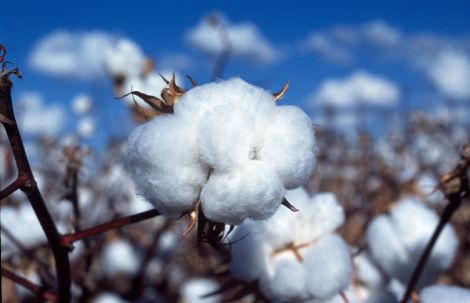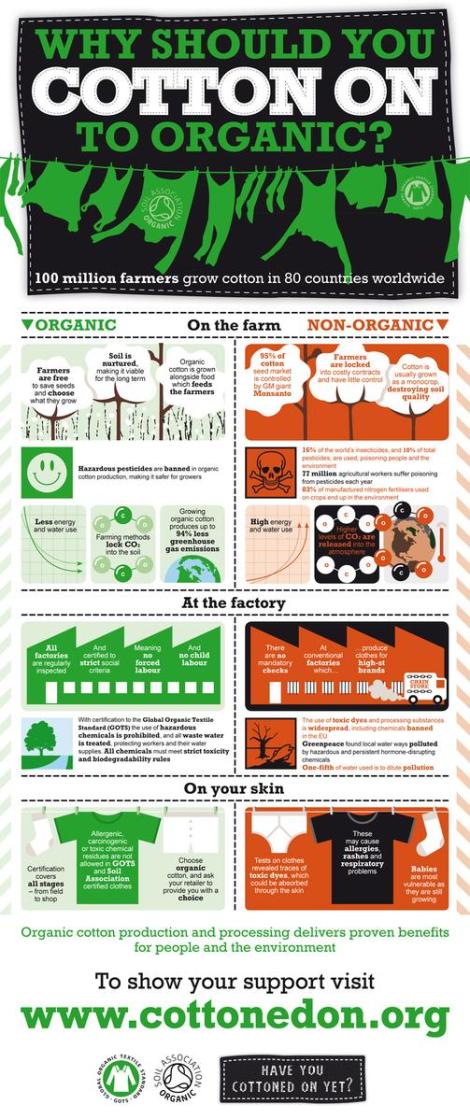
Photo: CSIRO/ http://www.scienceimage.csiro.au/image/3251
Do you know the difference between organic and non-organic cotton?
More importantly, why you should care?
The answer is simple.
Organic cotton is grown without all the nasty pesticides and fungicides that comes with conventional cotton production. Cotton is one of the most widely used products used by humans today but the difference between organic and non-organic really boils down to one fundamental difference: the process of cotton farming.
In traditional farming of cotton, chemical pesticides are used to ensure cotton crops are safe. In contrast, organic cotton farmers rely on natural alternatives when growing their cotton such as crop rotation, mixed cultivation as well as the creation of sustainable habitats to attract insects who are able to fend off cotton pests.
According to cottonedon.org:
To sustain a method of production in the long term (and thus make it sustainable), healthy and climate change resilient soils must be maintained, biodiversity of seeds and wildlife must be promoted and the livelihoods of farmers protected. Organic agriculture is based on this approach.
The system can’t be reliant on non-renewable resources, such as synthetic fertilisers and pesticides. Any kind of mono-crop production utilising non-renewable synthetic fertilisers and pesticides and Bt Genetically Modified seeds cannot be considered environmentally sustainable by any reasonable definition. Sustainability is often described as a journey of small manageable steps. But it is important to keep the end goal in mind.
Here’s a look at an infographic they created which shows the major differences between organic cotton and non-organic cotton.
Photo: cottonedon.org


I never thought of the multiple negative factors of non-organic cotton. Great post!
LikeLike
Hi Iana,
Not many people tend to know because it largely escapes mainstream discussion!
We hope that we have inspired you to think more about what you wear and how your clothes are produced 😀
LikeLike
Great post, never thought of it. But why don’t more cotton farmers grow organic cotton?
LikeLike
Because farmers usually resort to using pesticides to make their crops safe because it is the easier solution; alternative solutions such as alternate cultivation and crop rotation and time-costly and expensive.
LikeLike
The downside is that organic cotton clothing is much more expensive
LikeLike
Whats the difference between fairtrade and organic cotton?
And how do i know if its organic?
LikeLike